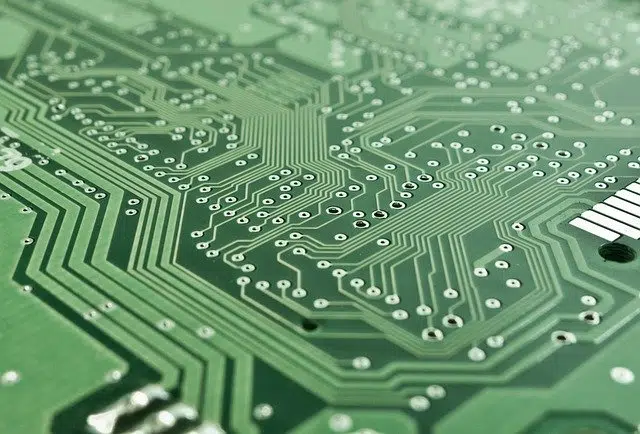
Coating sports courts is a common use of epoxy
Epoxy is a term that comes from the English word epoxy , in turn derived from the Greek terms epi- (which translates as “about” ) and oxy- (which refers to “sharp” ). In the field of chemistry , epoxy is referred to as a functional group that has a pair of adjacent carbon atoms, linked through a bridge made by an oxygen atom.
a resin
The idea of epoxy is often used as an adjective to refer to a resin . Resins, meanwhile, are pasty or solid substances that are usually obtained from different plants.
In the case of epoxy resin , it is a synthetic resin that is used to produce glues and plastics. It is usually generated from the mixture of epichlorohydrin molecules and bisphenol A chains.
Epoxy resins are thermostable polymers that, with the application of a catalyst , solidify in a process called curing . These resins can be used to fill, fix or seal, being valued thanks to their resistance to shocks and extreme temperatures.
in electronics
Other uses of epoxy resin appear in electronics and electricity . Epoxy resin, in this framework, is used to protect integrated circuits, transistors , generators and other elements from humidity and dust.
Epoxy resin can provide circuits with excellent insulation , without affecting their performance at all. In addition to the harmful external factors already mentioned, it is also effective against seawater and excessively high or low temperatures, which is why it is often used in ship sensors and other devices exposed to saline environments.
Risks of handling
It is important to mention that, whether in mixing, handling or use, contact with epoxy resins represents a potential health risk. Due to the release of vapors that can be inhaled, for example, it is possible to suffer damage to the body. Respiratory problems caused by epoxy resins can be considerable, although their severity depends on the characteristics of the environment in which they are inhaled.
If they are not well ventilated and their temperature is high, then the epoxy becomes even more concentrated in the air, and can cause allergic reactions . However, exposure is not as serious if the vapor is inhaled in open spaces, at room temperature. Burns are also among the risks of handling these resins, although they occur much less frequently. The worst irritations, which usually leave scars and spots, occur after long periods of contact with the skin. In this effect, the area of the body and the concentration of epoxy are relevant.

Epoxy resins also protect some electrical circuits from external factors.
Less than 10 percent of people who are exposed to epoxy for certain reasons suffer some type of skin reaction, with dermatitis being the most common of all. Although it can cause great discomfort, its effects do not take long to disappear. This is if the exposure does not extend too long, since then the problem can become chronic. Furthermore, if not treated in time, it may lead to eczema, which is accompanied by blisters and itching .
Returning to allergic reactions , the most serious consequence of epoxy resins, they occur in less than 2 percent. In each person, the degree of sensitization to this substance may be different, in addition to being linked to different issues, such as the level and frequency of exposure, the characteristics of their skin and their immune system . The time required for this acute dermatitis to occur is so particular to each individual that it can range from a few days to a few years.
